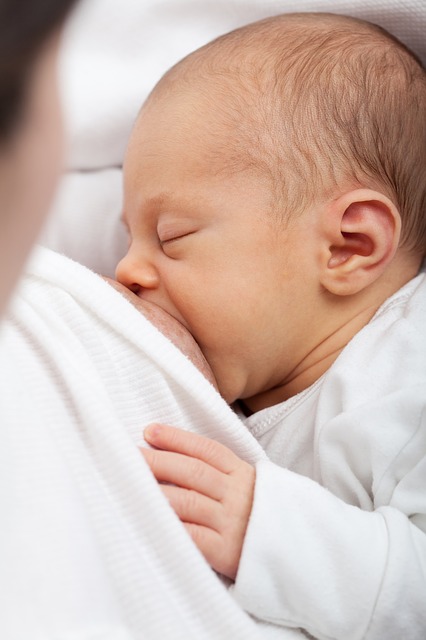Looking after a newborn can be quite taxing, especially if you decide to breastfeed. In the early months, your baby demands a lot of attention — from nursing every few hours, changing diapers, to cleaning spit ups. It’s no wonder you’re bound to have many restless days and sleepless nights! Prolonged exhaustion can turn into postpartum fatigue. A lot of have asked the question, “does breastfeeding make you tired”? We’ve got all the information and life-changing tips that can help you bust the fatigue!
In A Nutshell…
- Postpartum fatigue is a severe and prolonged negative feeling that is not as easily relieved like tiredness. It can leave you physically, emotionally, and mentally drained.
- Breastfeeding can be a cause of postpartum exhaustion. In addition, it can be due to inadequate sleep, lacking calories, poor diet, nutrient deficiencies, or breast infections.
- To cope up and fight fatigue, you can maximize your sleep, take time for yourself, eat right, work out, hydrate well, or get help and support from your family and friends.
Does Breastfeeding Make You Tired?

Being tired is inevitable, but being fatigued may have a whole new meaning. Postpartum fatigue has become a topic that’s been set aside as new moms are expected to know the responsibilities and rigors of breastfeeding and parenting. However, without addressing it, exhausted breastfeeding mothers can face low milk supply, abandon breastfeeding, and experience postpartum depression.
What You Need To Know About Postpartum Fatigue
Taking care of an infant requires both physical and mental effort. A baby’s irregular sleep patterns and frequent nursing are things to be anticipated in the early months after giving birth. And with all the other responsibilities in the household or at work, most mothers feel weak and weary at the end of the day.
Fatigue and tiredness may seem like the same, but they differ in many ways. Medically speaking, fatigue is a severe and prolonged negative feeling that is not as easily alleviated, unlike tiredness. For a new mother’s life, this includes physical, emotional, and cognitive aspects.
Physically, you may feel a general weakness and exhaustion. In terms of your emotions, you may experience feelings of depression or anxiousness. In addition, your mental clarity and motivation may be influenced as well.
Why Does Breastfeeding Make You Tired?

Most mothers have faced some form of postpartum exhaustion. Just imagine going through childbirth and having to recover after that — all while having to deal with the responsibilities and stresses of a new mom. In addition, breastfeeding can pose a whole new challenge!
Here are a few reasons why breastfeeding can wear you down:
Lack of Sleep
Breastfeeding should start as soon as you deliver your baby. You might not get enough sleep and rest due to your frequent night time nursing and diaper changing. The bad sleeping patterns can disrupt your sleep cycles, which can lead to fatigue.
Lacking Calories
It has been a common misconception that an increase in basal metabolic rate (BMR) may be the reason behind your tiredness. About 50 to 80% of the energy you burn daily comes from the BMR. However, a breastfeeding mother’s BMR actually remains the same as it were when they were pregnant. Why? Because the energy used to fuel lactation comes from the food you eat and your fat reserves.
Poor Diet
In order for your body to produce adequate breast milk, eating the right nutrition is very important. But when you’re a nursing mom, you may barely have enough time in your hands. Unhealthy habits like eating fast foods or having microwave dinners may the reason behind why you lack energy and feel tired all the time.
Nutrient Deficiencies
Speaking of nutrition, did you know that there are certain nutrients that a breastfeeding mother needs? Firstly, extra calories from food are essential to supply the needed energy burned through breastfeeding. Iron is also a particularly vital nutrient that can become deficient post-childbirth. Lacking in these nutrients can contribute to lethargy and fatigue.
Infections
Are you cleaning and sanitizing your breast and breast pumps after feeding? Breast infections like thrush can arise from contaminated breastfeeding equipment. Thrush does not only make your breast sore, tender, and painful. It can also lead to severe fatigue.
6 Ways To Cope Up When Breastfeeding Makes You Tired

Most parents are able to cope with the stresses of raising a child. If you’re feeling low, tired, ill-tempered, and unable to enjoy things, it’s time to take action and shift your habits. There are several things you can do to regain your energy and zest back!
Here are some of the best tips to cope up when breastfeeding makes you tired:
1. Maximize Sleep
Sleep is the ultimate solution to fighting fatigue. But, getting enough slumber can be tricky to figure out when you are breastfeeding even at night. Maximize your sleep and get the most out of your energy with the following techniques:
- Sleep according to your baby’s sleeping pattern. Newborns love their slumber sessions too. In the first 3 months, your baby will likely have 2-4 hour sleeping sessions throughout the day. Make the most out of this time by napping as well! A 20-minute power nap is enough to keep your energy levels and alertness high.
- Shift night-time feedings with your partner. Take alternate shifts of feeding your baby at night with your spouse. This allows both of you to catch up on sleep while getting to frequently feed your newborn. Pump out your milk supply before your partner’s turn so that your little one can still be nourished with your own milk.
- Make your bedroom a sleep haven. Many people lack the shut-eye in general because of the countless distractions they have on their bedroom. Create the optimal sleeping environment by shutting down all electronics and dimming out all of the lights. You can also add some relaxing elements like lavender-scented pillows or calming background music.
2. Take Time For Yourself
As a mom, you’d definitely want to do as much as you can for your baby and your family. And in the stress of all of it, you lose time and focus on yourself.
Here’s what you can do: focus on the priorities. You’re not a superhero, mommy. Although you’d want to tick everything in your list of things-to-do, sometimes it’s best to sort out which are the most important ones. And that includes giving yourself time to relax, sleep, and even exercise.
3. Eating Right
A breastfeeding mom needs her daily dose of a diet filled with all the essential nutrients, including vitamins, minerals, and fiber that will adequately fuel your body. A well-balanced nutrient-dense diet includes eating a lot of vegetables, fruits, whole grains, and lean proteins.
4. Work Out
Working out seems tiresome, but it can actually fight your fatigue. A good amount of exercise can boost your energy levels. Start with light exercises like a 10-minute walk, bicycle ride, or yoga and stretching every day. Once you have fully recovered, you can increase the intensity of your workouts and build back your endurance.
5. Hydrate Well
Now that you’re breastfeeding, you might feel thirstier than normal. Drinking lots of liquids throughout the day doesn’t just prevent dehydration. It can also keep your energy levels high.
The goal is to drink as much as 13 cups of water a day. A general rule you can follow is to drinks water, juice, or milk every time you eat something or whenever you finish nursing.
6. Get Help and Support
Things can get overwhelming with a new baby around. So don’t be afraid to ask the help of your partner, family, friends, or even seek the help of a postpartum doula. You don’t have to ask for big favors. Babysitting for a few hours, doing simple household chores, or running some errands are little things that can help you out in the long run.
When Should You Visit Your Doctor?
If these healthy lifestyle changes still make you tired and fatigued, it may be time to visit your doctor. There are specific nutrient deficiencies that might be the underlying cause for your prolonged exhaustion.
On the other hand, if think your anxiety and depression has lasted for a significant amount of time, it might be a sign of postpartum depression. Talk to a psychologist or your doctor to know the possible treatments and how you can best overcome the circumstances.
In Summary…
Breastfeeding mothers face so many new challenges and responsibilities that can lead to them have postpartum fatigue. Not having enough sleep, poor diet, certain nutrient deficiencies, and breast infections while breastfeeding can wear you out eventually. To cope up, try maximizing your sleep, take some time for yourself, eat right, exercise, or ask for help. If your tiredness and fatigue persist, it may be time to pay your doctor a visit.
Ultimately, preparation is key to a successful breastfeeding journey. Curious about what you should expect with breastfeeding after delivery? Read more about it in our previous article!





